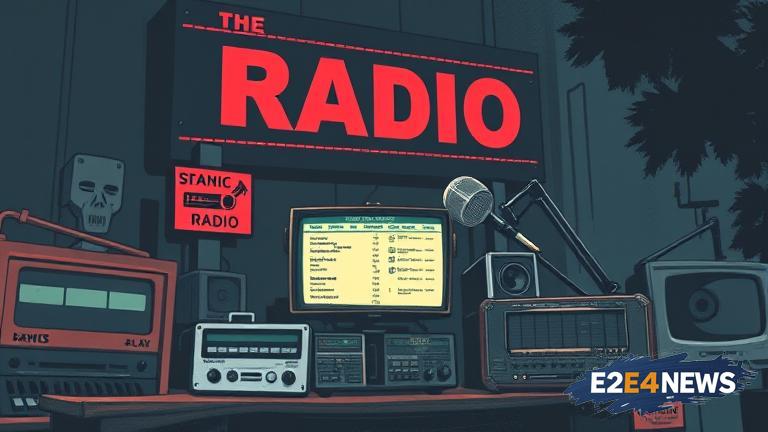The US public radio landscape is on the brink of a significant shift as local stations, including WNCW and Blue Ridge Public Radio, prepare for the potential impact of $11 billion in federal funding cuts. The Corporation for Public Broadcasting (CPB), which provides vital funding to public radio and television stations across the country, is facing a substantial reduction in its budget. This move has sparked concerns among station managers, journalists, and listeners alike, who fear that the cuts could lead to a decline in the quality and diversity of programming. The CPB has been a cornerstone of public media in the US, providing funding for stations to produce and broadcast high-quality content, including news, educational programs, and cultural events. The proposed cuts would have a disproportionate impact on smaller, rural stations that rely heavily on CPB funding to operate. These stations often serve as the primary source of news and information for their communities, and the loss of funding could leave many areas without access to reliable, local journalism. The funding cuts are part of a broader effort by Congress to reduce government spending, but many argue that the CPB is a vital institution that provides a unique public service. Public radio stations have long been a trusted source of news and information, and the potential loss of funding could have far-reaching consequences for the communities they serve. Station managers are exploring alternative funding models, including increased reliance on private donations and corporate sponsorships, but these efforts may not be enough to offset the loss of federal funding. The impact of the funding cuts could also be felt in the wider media landscape, as public radio stations often serve as a training ground for young journalists and provide a platform for diverse voices and perspectives. The CPB has a long history of supporting innovative programming and community engagement initiatives, and the loss of funding could stifle these efforts. As the situation continues to unfold, public radio stations are urging their listeners to contact their representatives and express their support for continued funding. The fate of the CPB and the public radio stations it supports remains uncertain, but one thing is clear: the potential loss of funding would have a profound impact on the US media landscape. The CPB has been a vital part of American cultural and intellectual life for decades, and its loss would be deeply felt. As the US continues to grapple with the challenges of a rapidly changing media environment, the importance of public radio stations and the CPB has never been more clear. The coming months will be crucial in determining the future of public radio in the US, and the outcome is far from certain.
